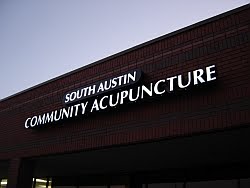There was a study recently reported that compared St. John's Wort and Citalopram (Celexa) to a placebo. Now, the study only looked at “minor depression” so we cannot interpret anything for other classifications of depression. But congratulations to St. John's Wort for being of equal effectiveness as an FDA approved, laboratory-derived pharmaceutical. However, as new (and older) books have been highlighting, this type of finding is pretty common.
Chinese herbal medicine also has various remedies with similar usage histories as St. John's Wort. We choose from one of several base formulas, based upon the symptom information a patient provides and some subtler pieces of information—this is what we're taking into account when we check a patient's tongue and pulses. In China they've conducted lots of studies on many of these classic formulas, but oftentimes it's really hard to trust the few findings we get wind of. In so many you get this “80% of patients reported some improvement in their condition so this formula is obviously awesome” result. But hopefully there is going to be a trend towards conducting more studies of Chinese herbs (and acupuncture, Wally) here in the U.S. For example, another recent study looked at using an herbal formula to treat hot flashes in post-menopausal women. While the study showed that they did not produce a statistically significant advantage over a placebo, it is encouraging to see this investigative process happening and hopefully see it be refined to take into account better prescribing methods for Chinese herbal formulas.
So someday, someone will get around to looking at some of the herbal formulas Chinese herbal medicine uses to address “diseases” such as minor depression. Those studies may also find that they are no better than a placebo. But that will probably mean that the Chinese herbs are also as effective as St. John's Wort or whatever antidepressant medication they go up against. And perhaps in that hopefully-not-too-distant “someday” acupuncture and Chinese herbs will find at least a minimal amount of funding that will save us from having to work mainly in this direction.



